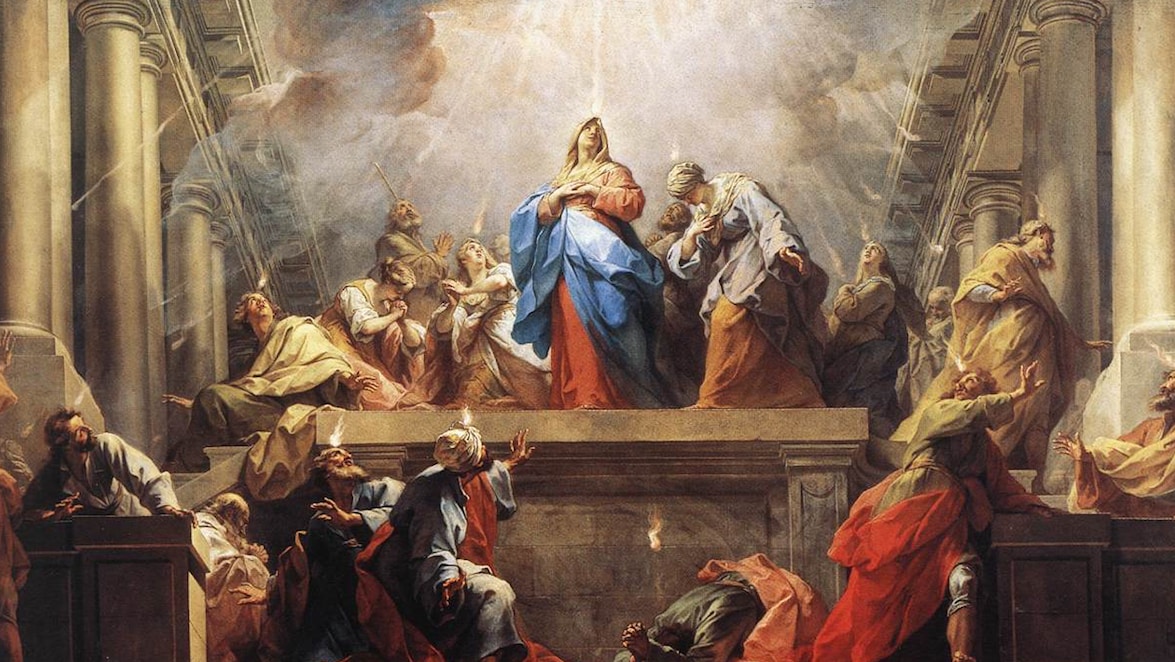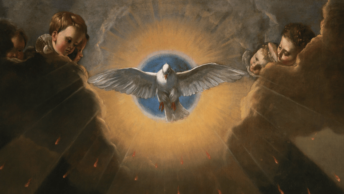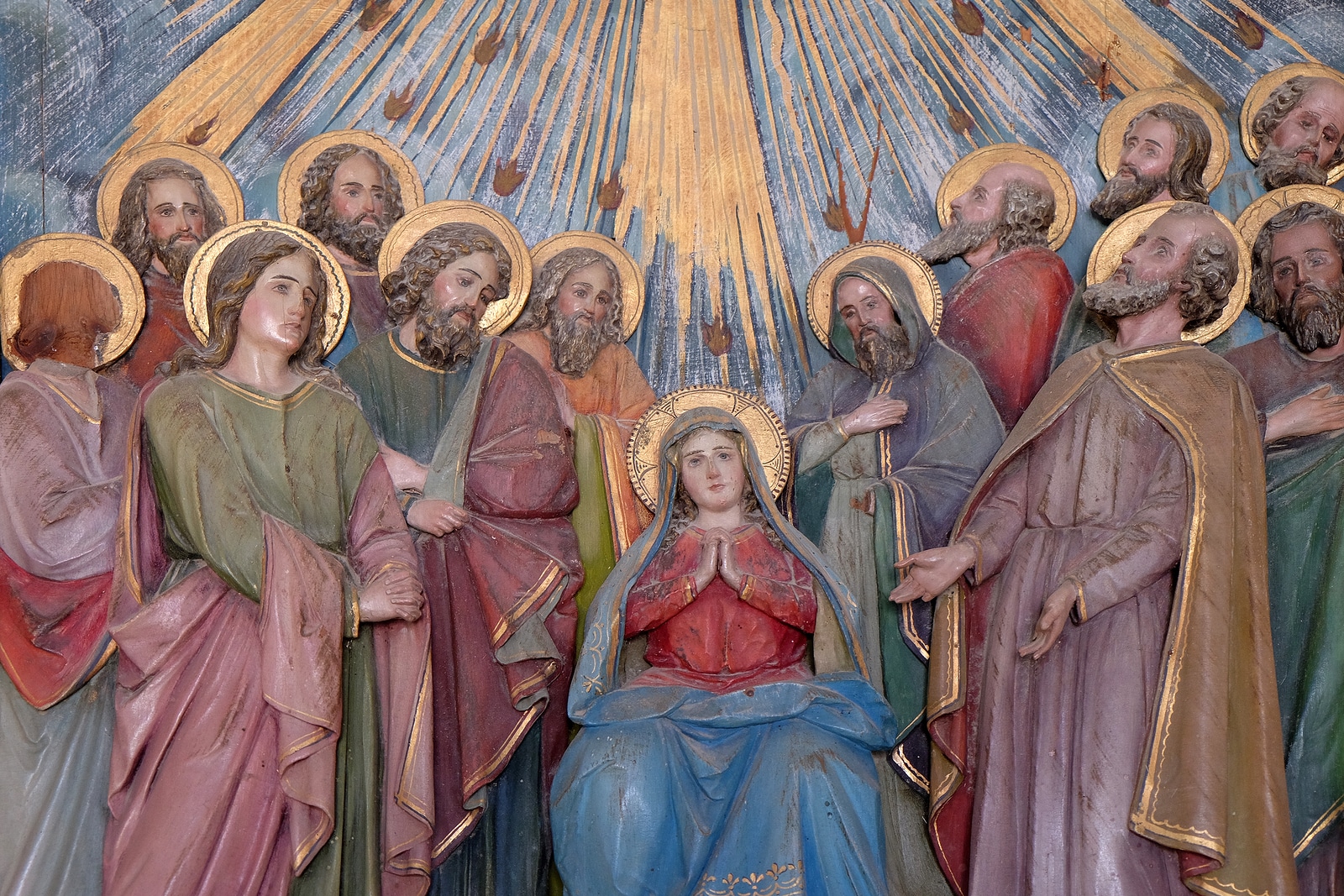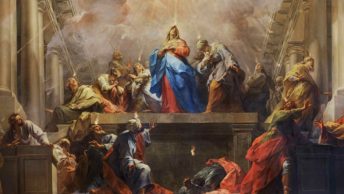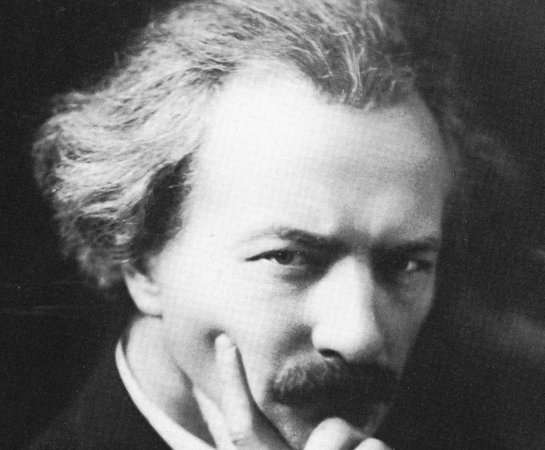 Years ago a woman bought a ticket to a concert by the great Polish pianist Ignace Paderewski; she took along her five-year-old son, hoping the experience would encourage him in his own beginning piano lessons. Their seats were in the very first row, and they arrived early. The mother saw an old friend, and became so busy talking with her that she didn’t notice her son slip away to do some exploring. Then the lights dimmed, the audience settled down, and spotlight shone on the stage. To the mother’s complete surprise and dismay, she spotted her son— innocently sitting at the piano on stage, using one finger to play “Twinkle, Twinkle, Little Star.” Before the woman could do anything, Paderewski himself stepped on stage; seeing the situation, he walked over the piano and whispered to the boy, “Don’t stop! Keep playing!” Then, standing behind the child, the great musician reached out to the keyboard with his left hand and added the harmony, while using his right hand to create an improvisation on the simple melody. When the maestro and the five-year-old boy finished their unplanned and unrehearsed duet, the audience applauded wildly; it was an event which those present would never forget (Link, Illustrated Sunday Homilies, Year C, Series II, p. 53).
Years ago a woman bought a ticket to a concert by the great Polish pianist Ignace Paderewski; she took along her five-year-old son, hoping the experience would encourage him in his own beginning piano lessons. Their seats were in the very first row, and they arrived early. The mother saw an old friend, and became so busy talking with her that she didn’t notice her son slip away to do some exploring. Then the lights dimmed, the audience settled down, and spotlight shone on the stage. To the mother’s complete surprise and dismay, she spotted her son— innocently sitting at the piano on stage, using one finger to play “Twinkle, Twinkle, Little Star.” Before the woman could do anything, Paderewski himself stepped on stage; seeing the situation, he walked over the piano and whispered to the boy, “Don’t stop! Keep playing!” Then, standing behind the child, the great musician reached out to the keyboard with his left hand and added the harmony, while using his right hand to create an improvisation on the simple melody. When the maestro and the five-year-old boy finished their unplanned and unrehearsed duet, the audience applauded wildly; it was an event which those present would never forget (Link, Illustrated Sunday Homilies, Year C, Series II, p. 53).
This image of the master and the child working together to produce something beautiful is quite appropriate on the feast of Pentecost, for the Holy Spirit works in and with and through the Church to accomplish wonderful things. This is also meant to be true in the life of each individual Christian. On our own, we can do little, but when we open ourselves to God’s Spirit, great things can happen.
The Acts of the Apostles describes the events of Pentecost. It was a traditional Jewish feast; that’s why so many Jews from around the Roman world were present in Jerusalem. However, it also marked the beginning of the Church, for the apostles were filled with the Holy Spirit and thereby commissioned to preach Jesus’ message. Those who receive the Spirit must be of service to others. That’s why, in the Gospel, Jesus linked the apostles’ reception of the Holy Spirit with the ministry of forgiving sins. That’s why, in Acts, the apostles immediately began proclaiming the Good News of salvation. That’s why, in his Letter to the Corinthians, St. Paul speaks of the many different gifts and ministries which flow from the Holy Spirit. As Paul says, “To each individual the manifestation of the Spirit is given for some benefit.” We must serve others, and in this way help build up the Body of Christ, and each of us has been given the opportunity and means of doing this.
By being confirmed, we have received the Holy Spirit and have been commissioned to serve God’s people—and through the gifts of the Holy Spirit, we are capable of doing worthwhile things in Christ’s Name. Think of someone who, in a quiet, unspectacular way, has made a real difference in your life: perhaps a parent or spouse who’s always been there when you needed him or her, or a former teacher who inspired you and encouraged you to believe in yourself, or a friend who stood by you in a difficult time, or perhaps even a stranger whose act of kindness set into motion a chain of good deeds or happy events which brightened your day. The Holy Spirit was working through these people—and the Spirit wants to be present in and through you in the very same way.
Each one of us is called to be a source of God’s grace, touching the lives of others; as improbable as it may seem, God wants us to be His partners in a great “concert of love.” The Holy Spirit can do great things through us—as long as we understand and accept what’s required. We don’t provide the miracles or the spiritual insights or the moments of grace— those things come from God. Our role is to provide the simple melody of faith and trust and acceptance. As long as our hearts are open, we don’t have to worry about how or who, where or when; God will take care of the details. We are like a simple child sitting at a grand piano on a massive stage in front of a giant audience; God whispers, “Don’t stop; keep playing!,” and He turns our humble efforts into something beautiful.
I’d like to conclude with a short poem:
Alone we are only a spark,
but in the Spirit we are a fire.
Alone we are only a string,
but in the Spirit we are a lyre.
Alone we are only an anthill,
but in the Spirit we are a mountain.
Alone we are only a drop,
but in the Spirit we are a fountain.
Alone we are only a feather,
but in the Spirit we are a wing.
Alone we are only a beggar,
but in the Spirit we are a king.
(Link, op. cit., p. 54)



